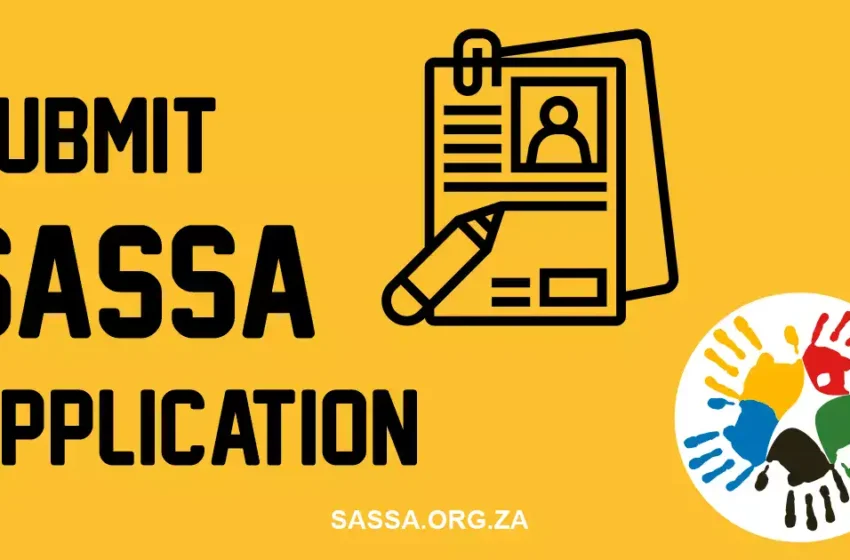South Africa: SASSA suspends grant payments over undeclared income — What beneficiaries need to know

Step-by-step guide to apply for SASSA social grants in 2025
The South African Social Security Agency (SASSA) has triggered widespread concern after suspending social grant payments to over 210,000 beneficiaries, many of them pensioners, due to undeclared sources of income. The suspension, which includes old-age pensions and other welfare categories, is part of a broader crackdown to ensure only eligible citizens receive state support.
Why SASSA Suspended Grants for Some South African Beneficiaries
According to SASSA, the action follows a routine verification process using data from credit bureaus and financial records. This flagged beneficiaries suspected of receiving additional income—from part-time work, business ventures, or other sources—not declared during the grant application process.
The Social Assistance Act mandates that applicants must disclose all sources of income and report any changes. SASSA claims this ensures fairness and prevents “double-dipping”, where individuals receive grants despite being financially ineligible.
Old-Age Pensioners and Other Grant Categories Affected in South Africa
The suspension does not only affect pensioners. It also impacts disability grants, child support grants, and the Social Relief of Distress (SRD) grants. Many recipients received SMS notifications advising them to verify or update their personal and financial information with their local SASSA offices.
In South Africa’s colder winter months, the suspension of pension grants—often the only income for elderly citizens—has led to panic and hardship in some communities, especially in rural areas where administrative resources are limited.
SASSA’s Grant Verification Process and Legal Backing Explained
The agency’s action is supported by Regulation 30 of the Social Assistance Act, which allows for the suspension or cancellation of grants if recipients fail to comply with information requests. Beneficiaries are given 30 days to respond, update documentation, or appeal the decision.
SASSA says the verification process is essential for maintaining integrity in the welfare system and ensuring that state resources reach only those who genuinely qualify. However, critics argue the process lacks adequate transparency and has caused confusion among vulnerable citizens.
Common Reasons Why South African Beneficiaries Were Flagged
Many South Africans may be unaware that certain transactions or asset records can be seen as income. Common reasons for being flagged include:
-
Undisclosed income from informal jobs, side businesses, or rental property
-
Active business registrations with the Companies and Intellectual Property Commission (CIPC)
-
Bank transactions indicating regular cash deposits
-
Possession of multiple bank accounts or credit facilities
Some pensioners were also flagged for outdated documentation, such as expired IDs, missing bank statements, or the absence of updated medical reports (for disability grant recipients).
What South African Grant Recipients Should Do Immediately
SASSA has urged affected beneficiaries to visit the nearest SASSA office within 30 days with all required documents. These include:
-
A valid South African ID (Smart ID or updated barcoded ID)
-
Bank statements for the past three months
-
Proof of residence
-
Sworn income affidavit (if applicable)
-
Updated medical reports (for disability and care dependency grants)
It is also advisable for grant recipients to keep a copy of all documents submitted and request a written confirmation of submission or follow-up date to track progress.
Public Reaction and Social Impact Across South Africa
The suspension has led to panic and protests in several communities. In parts of Cape Town and KwaZulu-Natal, pensioners have gathered at SASSA offices demanding clarity and faster processing of their claims.
Some civil society groups argue that SASSA’s communication was inadequate and call for the agency to improve outreach efforts, especially in areas where elderly citizens rely on others for transportation or literacy support.
This situation also highlights ongoing concerns about digital exclusion, as many notices were sent via SMS or email—channels that not all grant recipients monitor regularly.
The Bigger Picture: Why SASSA Is Getting Tough on Grant Eligibility
SASSA’s action is part of its renewed focus on reducing fraud, misrepresentation, and duplication in the welfare system. With over 19 million South Africans relying on grants, the government aims to ensure that every rand spent is accountable and justifiable.
While the intent may be to improve fairness, there are calls for the agency to balance accountability with empathy, especially when vulnerable lives are involved. Critics also argue that the current suspension affects poor South Africans disproportionately, some of whom may have unknowingly triggered compliance red flags.
READ ALSO
Common mistakes that can get your SASSA grant rejected – And how to avoid them
Can you lose your SASSA grant for not declaring your income?
SASSA grant suspensions loom: Beneficiaries urged to disclose income and update details
SASSA July 2025 Grants: How to prepare, avoid delays and unnecessary fees
The origin and purpose of SASSA grants in South Africa: What inspired the system?
Step-by-step guide to apply for SASSA social grants in 2025
Understanding the root causes of SASSA grant delays in 2025
Final Advice: How to Protect Your Grant in South Africa
To avoid suspension, beneficiaries are advised to:
-
Update their information regularly with SASSA, especially if income status changes
-
Keep paperwork organized and up-to-date
-
Respond to SASSA notices promptly
-
Use SASSA’s official channels to verify requests and avoid scams
Those who believe they were wrongly suspended can request a formal review or appeal through the agency’s internal mechanisms. Legal aid is also available in some provinces for those unable to navigate the process on their own.

